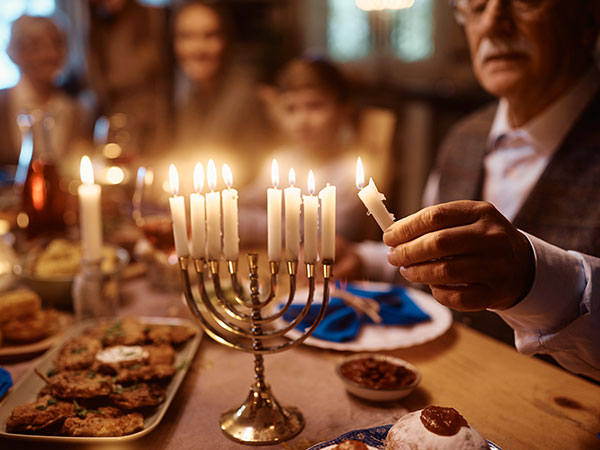Hanukkah, also known as the Festival of Lights, is an eight-day Jewish celebration that commemorates the rededication of the Second Temple in Jerusalem during the second century BCE. This event is rooted in the Maccabean Revolt against the Seleucid Empire, which sought to impose Hellenistic culture and religion upon the Jewish people.
Historical Background
In 168 BCE, King Antiochus IV Epiphanes desecrated the Second Temple, leading to a revolt led by the Maccabees. After their victory, they restored the Temple and rekindled the menorah, which miraculously burned for eight days with a small amount of oil. This miracle is central to the celebration of Hanukkah, symbolizing hope, perseverance, and divine intervention.
Hanukkah Traditions
Hanukkah is marked by several traditions, including the lighting of the menorah, which has nine branches—eight for each night of the festival and one for the shamash, or helper candle. Families gather to light the menorah, recite blessings, and enjoy traditional foods such as latkes (potato pancakes) and sufganiyot (jelly-filled donuts).
Jesus and Hanukkah
From a Hebraic perspective, it is noteworthy that Jesus celebrated Hanukkah. The New Testament references this in the Gospel of John (10:22-23), where it mentions Jesus walking in the Temple during the Feast of Dedication. This highlights the significance of Hanukkah not only in Jewish tradition but also in the context of early Christianity.
For Jesus and his followers, Hanukkah represented a time of renewal and hope, echoing themes of liberation and divine presence that resonate throughout the scriptures. Celebrating Hanukkah can thus be seen as a bridge between Jewish heritage and the early Christian faith.
A Unique Convergence in 2024
This year, Hanukkah will be celebrated on the same day as Christmas, adding a unique dimension to both festivities.
Conclusion
Hanukkah serves as a profound reminder of resilience and faith. Its historical roots and rich traditions offer a glimpse into the enduring spirit of the Jewish people. As we reflect on this festival, we can appreciate its significance not only within Judaism but also in the broader narrative of faith that includes our Lord and Savior, Y’shua (Jesus), who engaged deeply with the traditions and celebrations of His time.
Wishing everyone a blessed Hanukkah and Christmas!
